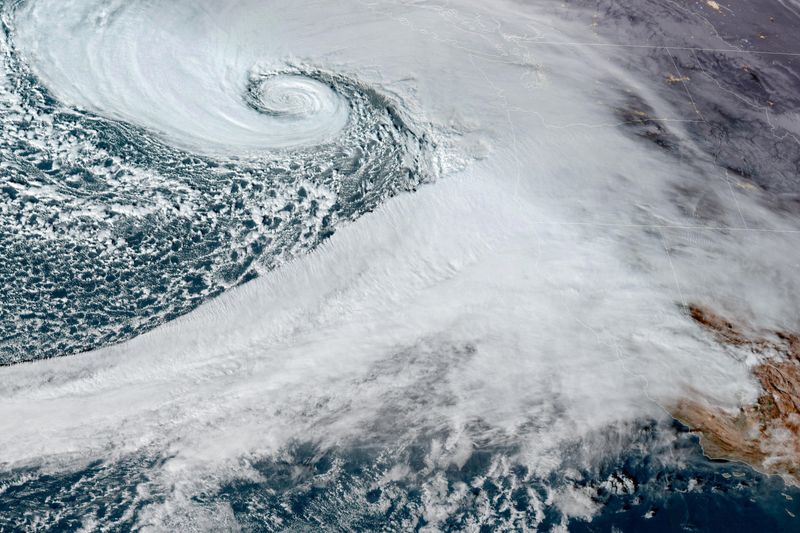Bomb cyclone pounds Northwest US, leaving 600,000 without power

By Rich McKay and Brendan O’Brien
(Reuters) – A powerful storm was clobbering Washington state on Wednesday, knocking out power to hundreds of thousands while wreaking havoc on road travel and causing at least one death and two injuries.
A woman was killed on Tuesday when a tree fell on a homeless encampment in Lynnwood, just north of Seattle, CNN reported, citing the local fire department. Two people were also injured when a tree fell on their trailer in Maple Valley, southeast of Seattle, the network reported.
Schools across western Washington canceled classes or postponed the start of school on Wednesday.
The storm with hurricane force winds of 50 miles (80 km) per hour and gusts around 70 mph felled trees and power lines overnight. It knocked out electricity to more than 600,000 homes and businesses in Washington, Southwest Oregon and Northern California, according to the Poweroutage.us.
“The storm is just beginning,” said Rich Otto, a meteorologist with the NWS Weather Prediction Center in College Park, Maryland.
“We haven’t gotten a ton of rain yet, just 2-3 inches over Southwest Oregon and Northern California,” Otto said.
But the storm, called a “bomb cyclone” which happens when the storm rapidly intensifies, is going to stall over Northern California in the next few days, he said.
“The biggest surge is Thursday. We’re looking at 10-15 inches of rain by Friday, some places, 20-inches,” Otto said, with the main concerns for southwest Oregon and Northern California.
A bomb cyclone rapidly intensifies when a cold air mass from the polar region collides with warm tropical air.
The weather service has issued a plethora of warnings and watches across the Pacific Northwest for high winds, flood watches and warnings, and including blizzard warnings from Northern Washington to the Sierra Nevada Range.
According to the state’s department of transportation, the storm was making road travel treacherous. Downed trees and weather conditions were slowing traffic across the state, as the department warned motorists to be cautious while on the roadways.
(Reporting by Brendan O’Brien in Chicago, Rich McKay in Atlanta;Editing by Elaine Hardcastle)